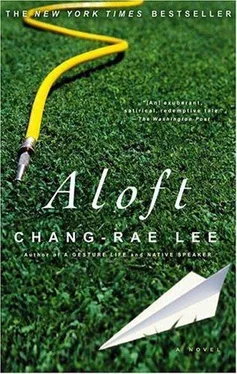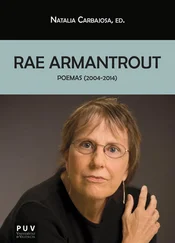Of course I spent several hours online doing all sorts of searches on the disease, there being an astounding amount of material and hot links and hospital and pharma company sponsored sites on Hodgkin's and non-Hodgkin's lymphoma, and soon enough realized that I could search within these for preg:-
nancy issues. This second stage of Googling/Yahooiug, however, yielded surprisingly few "results," and what there was only outlined predictably general recommendations for what a woman in Theresa's situation might do, the basic wisdom (no surprise) being that you treated the cancer as soon as the baby was born (or prematurely induced if the condition of the mother was serious), or the pregnancy was "terminated," either way trying to ensure the best "outcome" for both but then certainly favoring the health of the mother over that of the fetus, though of course this was never actually expressed. What seemed clear, though, was that the time of diagnosis would de-termine whether (if early) you would end things right away and move on and hope you could get pregnant after you were cured, or (if late) you would make the best of it, as long as that seemed prudent. Nowhere did I read any mention about an early diagnosis and riding it out, as if that scenario weren't the purview of medical professionals but some other more philosophically capable group.
So the question is, How, then, does our own Theresa Battle resolve to take the path of essentially a person of faith (or epochal stubbornness)? I don't know. Perhaps it's that I never introduced her to the ready comforts of institutionalized religion, even after her mother died, or that her intellectual studies were in good measure predicated upon the Impossibility of Meaning, or that our tidy post-Daisy troika has really been the loose association of three very separate, unconnected beings, who share only the minimum genetic material and the securely grounded belief that a full belly makes for a carefree, loafing soul (zealous eaters that we are). Maybe it shouldn't surprise me at all, then, that Theresa should take a whopping leap right here and choose for the moment her fetus's life over her own (despite the chances that neither might make it), and commit to something so wholly unreasonable that it would seem no other act in her days spent or to come would ever be as pure.
But I don't know. This is the sort of thinking often proffered in deadly serious novels full of nourishing grace and humanity, but which seems, served up in our famished real life, to be about as satisfying as a radish. Maybe this in turn explains my undue interest in and empathy for imperiled billionaire balloonists, whose public trials are patent and palpable and, as in the worst of our own ordeals, ultimately self-inflicted. And maybe Sir Harold, and Theresa, and the rest of us presumedly wracked agonistes, are in fact making very simple choices, dull to ramification, as we are unable to do much of anything else.
After eating a breakfast of plain live-culture yogurt and honey maple granola and bananas and black coffee, which I mention only because it's the exact breakfast Rita always had, every day, without fail, even when we were in Paris and the baguettes and cafe an lait were magnificent, and which she probably still eats with Marquis Richie in his wrought-iron-and-glass conservatory breakfast room, I tried to see what new news there was about Sir Harold. There was nothing in the paper and after futilely trying for thirty minutes to log on and sign in to my often balky Internet service, the popular one that every person I know under thirty-five tells me is for dodos and suckers, I gave up and drove over to the Battle Brothers "office"
near Commack to use their computer. I sometimes do this when I can't connect, as Jack has of course installed a special connection line that is 10 or 100 or whatever times faster than what I have at home, and which is always on, and which I don't understand. At Parade our computers are solely travel reservation terminals, though that will soon change, I hear, and besides I don't like to go in when it's not my workday, as there's often a backup and I'm pressed into duty. I'm still not quite sure why Jack needs the fast line at Battle Brothers, unless he thinks keeping the guys on the crews hyped up and happy with the constant streams of electronic smut is a necessary and important company perk. Before the trucks get sent out at 7 A.M., you'll see a bunch of guys huddled around a computer in the back office checking out some website featuring Nasty Teens or Horny Housewives and making the age-old locker room comments about the gynecological wonders of this world. I've perused these sites myself, of course, as at least 90 percent of the e-mail I get each day is linking advertisements to sites for every sexual practice, taste, and persuasion imaginable and unimaginable (the computer guy voice should really say,
"You've Got Porn!"), the rest being get-rich-quick schemes and second-mortgage offers and then every once in a while an e-mail from someone I actually know, usually not a personal message but a forwarded joke or humorous news item or, alas, some doctored nude picture of a celebrity.
When I drive in through the gate it's already past nine and so the yard has pretty much cleared out of trucks and equipment trailers. Jack's SUV isn't here, either, which dumb thing of dumb things gives me a welling of idiot pride, all because I imagine he's out directing his men, which he probably isn't, as he's probably doing estimates and yakking with suppliers or meeting with his bankers to discuss the possible IPO, which seems less likely every day. I must say the place looks pretty decent, despite the fact that the whole property is paved and fenced and should be nothing special to look at, if not a typical industrial zone eyesore. The three acres Pop and his brothers paid diddly-squat for after the war is probably worth at least a million now as long as there's not some huge environmental problem with it because of all the motor oils and fuels we keep around here, not to mention the fertilizers and lawn chemicals.
Down the road is a cluster of smallish houses from the 1950s where a girl I dated one summer named Rose lived with her mother and aunt and sad drunk of a stepfather who she said touched her once but never again because she practically bit the tip of his ear off and he got spooked and cried like a baby, and I mention her mostly because since then I've somehow always associated Battle Brothers with her, if in the smallest way; in fact there's not been a time I've come here that my thoughts haven't ranged to the Cahills' cramped, dusty house that always smelled of frying bacon and stale beer, and to Rose, who would tug down my undershorts back in the far bay of our garage with a wry sneaky smile and handle me so roughly with her short fingers I sometimes had to ask her to stop. We got along fine enough, but the funny thing was that Rose saw me as a rich kid and I suppose compared to her, with her big toe poking through her thirdhand Mary Janes, I definitely was; after necking we'd walk back to her house and sit on the front stoop, and more than once she said I had it made in the shade for the rest of my life.
I knew even then that she was probably right, which made me feel equal parts pride and resentment for Pop and the family and a kind of unfair dominion over her that I've admittedly also felt with Daisy and Rita (and Kelly), who all came from pretty hardscrabble backgrounds and though generally not into money weren't exactly naive about it either. And maybe they all partly fell for me because of the very inevitability of my future, which is the happy, lucky curse of much of my generation and the next but I'm not sure will be for Jack or his kids, despite these flush times. Sometimes I think Jack and Eunice subcon-sciously know this, too, and maybe that's why they tend to go overboard with the spending, as if they're not just suburban American well-to-do but jet-set wealthy, to get theirs while they still can.
Читать дальше











